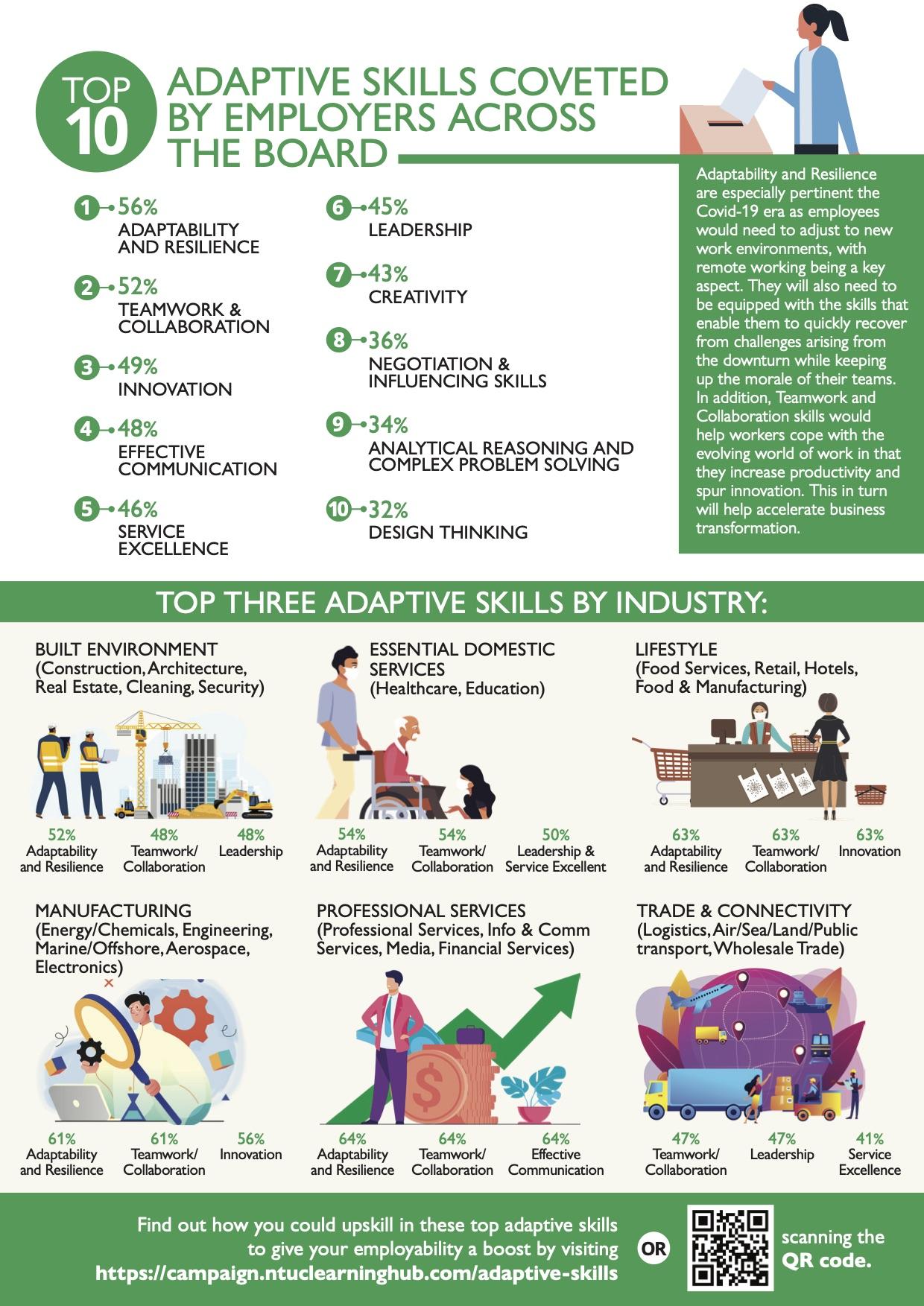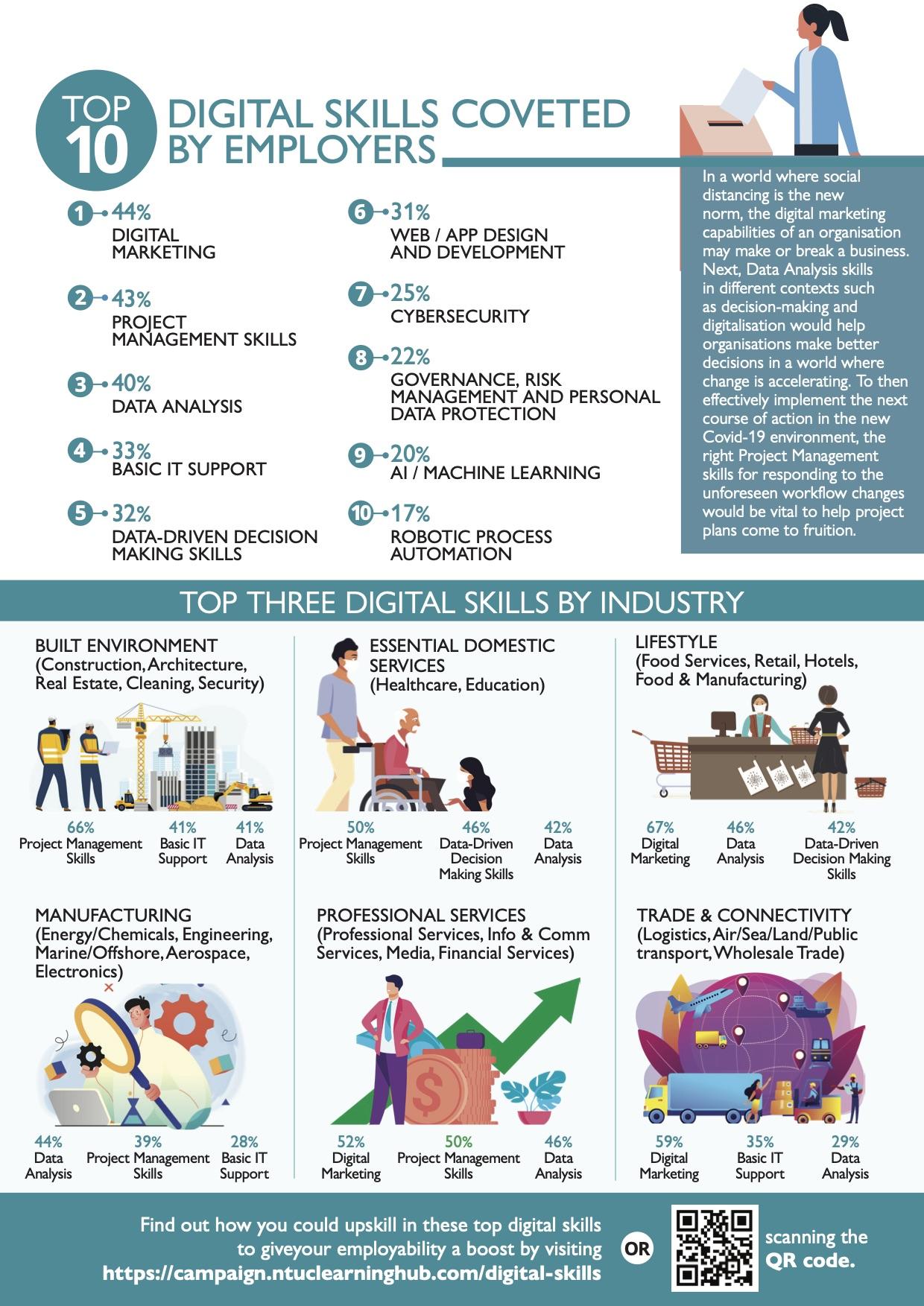share on
To keep businesses going amid the COVID-19 pandemic, amongst other measures, many employers are adopting a far-sighted approach by training their workforce or rotating employees within their company. When sending workers for training, two in three deem ‘improving soft skills or adaptive skills’ an imperative.
According to NTUC LearningHub’s Employer Skills Survey report, 36% of business leaders across Singapore are either upskilling or redeploying their workers across departments.
The survey, which was conducted during the ‘circuit breaker’ in April 2020, revealed that 84% of business leaders ‘strongly agree’ or ‘agree’ that sending their workers for training during this period will help their business to develop stronger resilience. In particular, businesses from severely affected industries were more likely to strongly agree (53%) as compared to other industries (26%).
In the same vein, 60% of business leaders currently use or intend to use this period to train their workers, with businesses in severely affected industries being more likely to train their employees during the downtime (67%) compared to other industries (55%).
When training their workforce, top priorities included:
- Improving soft skills/ adaptive skills (65%)
- Deepening competencies in the worker’s current role / improving technical skills related to their roles (64%)
- Equipping them with more general technology-related skills (58%)
- Reskilling them with technical skills different from their current roles (53%)
- Leveraging government support schemes (48%)
Overall, adaptive skills such as ‘adaptability and resilience’ (56%), ‘teamwork and collaboration’ (52%) and ‘innovation’ (49%) had superseded digital-related competencies including ‘digital marketing’ and project management skills.
In addition, two in three employers (65%) deem ‘improving soft skills or adaptive skills’ an imperative when sending their workers for training during this period, further underpinning the significant emphasis that businesses are placing on this competency.

Despite the rise in importance of adaptive skills, in a world where social distancing is the new normal, digital skills remain important.
Digital marketing and project management skills remain sought after by 44% and 43% of business leaders respectively. Apart from that, data analytics skills are also coveted by 40% of employers. Such skill in different contexts such as in decision-making and digitalisation would help organisations make better decisions in a world where change is accelerating.

Commenting on the findings, NTUC LearningHub’s CEO Kwek Kok Kwong said: “As we enter phase one of re-opening the economy, we face a new normal. And as the changes persist, so will the enduring importance of adaptive skills in helping workers and companies remain resilient. Workers must actively identify gaps in their current skillsets to determine the areas in which they need to upskill to keep pace with evolving labour market demands.
“Adaptability and Resilience are especially pertinent during these uncertain times as workers would need to adjust to new work environments, with remote working being a key aspect. They will also need to be equipped with the skills that enable them to quickly recover from challenges arising from the downturn, while keeping up the morale of their teams. In addition, Teamwork and Collaboration skills would help workers cope with the evolving world of work as they help increase productivity and spur innovation. This, in turn, will help accelerate business transformation.”
Infographics / NTUC LearningHub
Lead image / iStock
share on
Follow us on Telegram and on Instagram @humanresourcesonline for all the latest HR and manpower news from around the region!
Related topics


